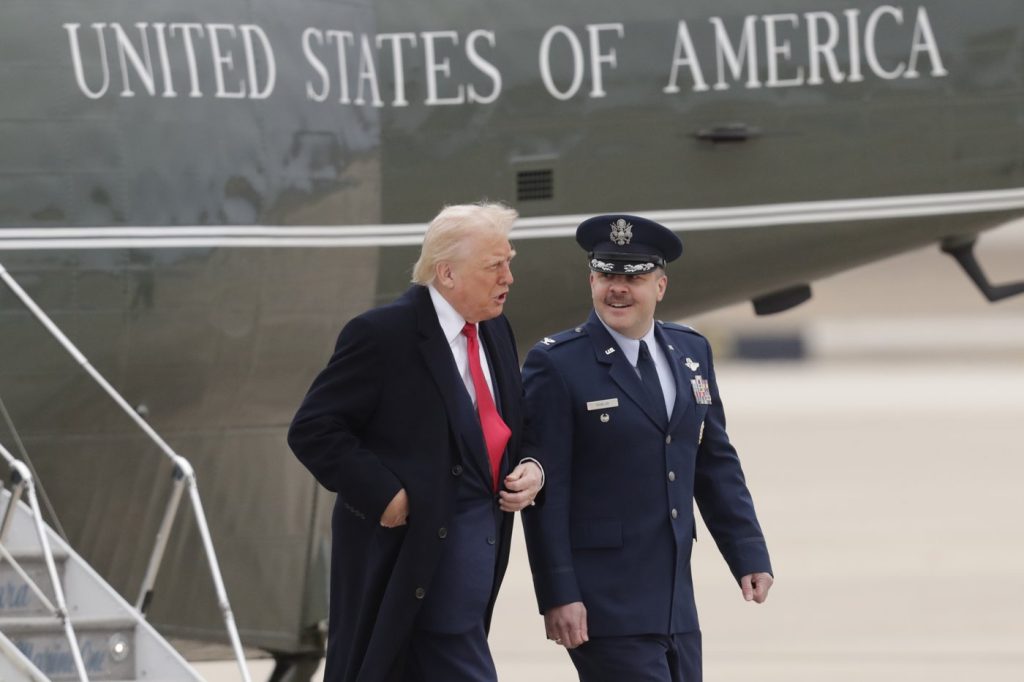CAPE TOWN, South Africa (AP) — The Trump administration's recent action to expel the South African ambassador, Ebrahim Rasool, marks a significant escalation in its stance toward South Africa, a nation that has been a target for U.S. sanctions. The administration has accused South Africa of being anti-white and anti-American, comments that have drawn substantial criticism and controversy.
U.S. Secretary of State Marco Rubio made the announcement via a post on X, stating that Rasool was "no longer welcome in our great country" and labeling him as a "race-baiting politician" who despises both America and President Donald Trump. While Rubio did not divulge specific reasons for this expulsion, he shared a link to a Breitbart article that reported on Rasool's remarks during a webinar. Rasool posited that the "Make America Great Again" movement represented a response to a "supremacist instinct."
Previously, Trump had issued an executive order halting all funding to South Africa, criticizing the Black-led government for its domestic and foreign policies, alleging that they pursue anti-white agendas. The order condemned South Africa for supporting what Trump called "bad actors" globally, specifically mentioning groups like Hamas and countries such as Iran.
White Afrikaner farmers, who represent a minority group in South Africa, have become a focal point in Trump's rhetoric. The Trump administration erroneously accused the South African government of committing rights violations against these farmers through land seizure laws. However, no land has been confiscated, and South Africa's leadership has refuted U.S. claims as misinformation. Experts stress that the ongoing violence in South Africa impacts all farmers, regardless of race, amidst a broader high crime rate in the country.
Trump's administration has also pointed to the ongoing tensions involving Israel and Palestine, notably South Africa's recent case at the United Nations where it accused Israel of genocide against Palestinians. During this contentious debate, Israel condemned South Africa for acting as a proxy for Hamas. Trump echoed these allegations, describing South Africa's foreign policy as anti-American.
South Africa's post-apartheid government, which has historically supported the Palestinian cause since Nelson Mandela's presidency, draws parallels between the Palestinian situation and the historic oppressions faced by Black South Africans. Rasool hails from a South African Muslim community known for its advocacy for Palestinians, which has additionally fueled criticisms linking him to Hamas.
The U.S.-South Africa relationship has further deteriorated over South Africa's role in the G20, where it holds the presidency this year. Rubio expressed his intention to boycott the G20 summit in November over the South African presidency's theme, which emphasized "solidarity, equality, and sustainability," dismissing it as mere "DEI (diversity, equity, and inclusion) and climate change."
Despite these escalating tensions, the South African government has expressed a desire to repair its relationship with the U.S. President Cyril Ramaphosa's office conveyed surprise at the sanctions and reiterated South Africa's commitment to fostering mutually beneficial ties with America. However, the trajectory of U.S.-South Africa relations had already been strained under the Biden administration, with accusations of South Africa supporting Russia amid the Ukraine conflict.
Ramaphosa has indicated an openness to dialogue with Trump's administration, yet his party, the African National Congress (ANC), has demonstrated resistance through actions like inviting the Iranian ambassador to its headquarters. This defiance illustrates the complexities of international diplomacy surrounding issues of race, land, and foreign policy.










